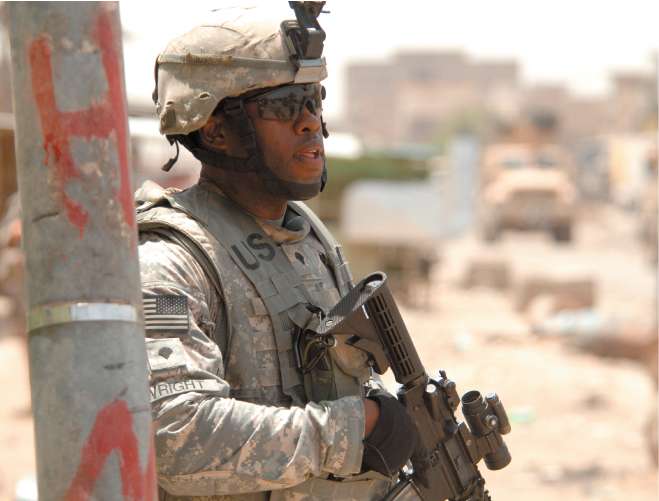US issues threat to Iraq's $50bn foreign reserves in military deal

The US is holding hostage some $50bn (£25bn) of Iraq's money in the Federal Reserve Bank of New York to pressure the Iraqi government into signing an agreement seen by many Iraqis as prolonging the US occupation indefinitely, according to information leaked to The Independent.
US negotiators are using the existence of $20bn in outstanding court judgments against Iraq in the US, to pressure their Iraqi counterparts into accepting the terms of the military deal, details of which were reported for the first time in this newspaper yesterday.
Iraq's foreign reserves are currently protected by a presidential order giving them immunity from judicial attachment but the US side in the talks has suggested that if the UN mandate, under which the money is held, lapses and is not replaced by the new agreement, then Iraq's funds would lose this immunity. The cost to Iraq of this happening would be the immediate loss of $20bn. The US is able to threaten Iraq with the loss of 40 per cent of its foreign exchange reserves because Iraq's independence is still limited by the legacy of UN sanctions and restrictions imposed on Iraq since Saddam Hussein invaded Kuwait in the 1990s. This means that Iraq is still considered a threat to international security and stability under Chapter Seven of the UN charter. The US negotiators say the price of Iraq escaping Chapter Seven is to sign up to a new "strategic alliance" with the United States.
The threat by the American side underlines the personal commitment of President George Bush to pushing the new pact through by 31 July. Although it is in reality a treaty between Iraq and the US, Mr Bush is describing it as an alliance so he does not have to submit it for approval to the US Senate.
Iraqi critics of the agreement say that it means Iraq will be a client state in which the US will keep more than 50 military bases. American forces will be able to carry out arrests of Iraqi citizens and conduct military campaigns without consultation with the Iraqi government. American soldiers and contractors will enjoy legal immunity.
The US had previously denied it wanted permanent bases in Iraq, but American negotiators argue that so long as there is an Iraqi perimeter fence, even if it is manned by only one Iraqi soldier, around a US installation, then Iraq and not the US is in charge.
The US has security agreements with many countries, but none are occupied by 151,000 US soldiers as is Iraq. The US is not even willing to tell the government in Baghdad what American forces are entering or leaving Iraq, apparently because it fears the government will inform the Iranians, said an Iraqi source.
The fact that Iraq's financial reserves, increasing rapidly because of the high price of oil, continue to be held in the Federal Reserve Bank of New York is another legacy of international sanctions against Saddam Hussein. Under the UN mandate, oil revenues must be placed in the Development Fund for Iraq which is in the bank.
The funds are under the control of the Iraqi government, though the US Treasury has strong influence on the form in which the reserves are held.
Iraqi officials say that, last year, they wanted to diversify their holdings out of the dollar, as it depreciated, into other assets, such as the euro, more likely to hold their value. This was vetoed by the US Treasury because American officials feared it would show lack of confidence in the dollar.
Iraqi officials say the consequence of the American action was to lose Iraq the equivalent of $5bn. Given intense American pressure on a weak Iraqi government very dependent on US support, it is still probable that the agreement will go through with only cosmetic changes. Grand Ayatollah Ali al-Sistani, the immensely influential Shia cleric, could prevent the pact by issuing a fatwa against it but has so far failed to do so.
The Grand Ayatollah met Abdul Aziz al-Hakim, the leader of the Islamic Supreme Council of Iraq (ISCI), which is the main supporter of the Iraqi government, earlier this week and did not condemn the agreement or call for a referendum. He said, according to Mr Hakim, that it must guarantee Iraqi national sovereignty, be transparent, command a national consensus and be approved by the Iraqi parliament. Critics of the deal fear that the government will sign the agreement, and parliament approve it, in return for marginal concessions.
Join our commenting forum
Join thought-provoking conversations, follow other Independent readers and see their replies
Comments